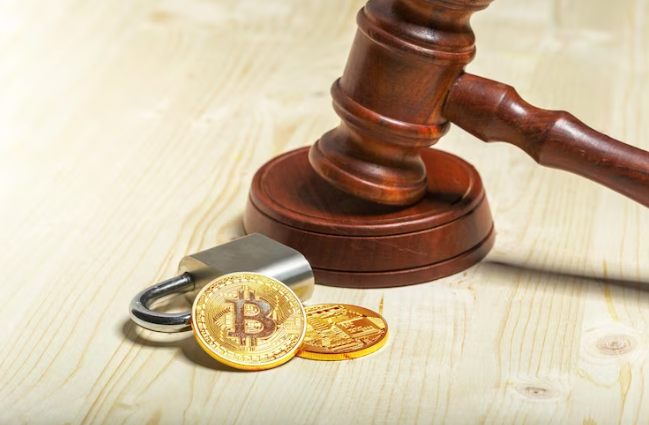In the ever-evolving world of crypto, specific rules and regulations are essential in every nation, just as with any useful or potentially risky innovation. Cryptocurrencies have sparked varying perspectives globally, with some countries embracing them as a potential economic boost and a catalyst for the financial sector. On the other hand, some view cryptocurrencies as a disruptive force to traditional trading systems. Let’s delve into the diverse legal landscapes governing digital currencies worldwide, exploring crypto laws of top nations to this transformative phenomenon.
USA (United States of America):
Regulatory Institutes:
There are three federal institutes to regulate digital assets (transmitter, commodity, or security). Each institution can only restrict a digital investment that is under their control, as:
FinCEN (Financial Crimes Enforcement Network): regulates digital assets which are transmitter
CFTC (The Commodity Futures Trading Commission): regulates digital assets, which are commodities
SEC (The Securities and Exchange Commission): regulates digital assets which are securities.
You must be aware of SEC due to its legal battle with Ripple and Coinbase. Want to know more about SEC vs. Ripple legal battle, Click here:
Essential Laws for Cryptocurrencies:
The Bank Secrecy Act (BSA): With the anti-money laundering framework, this law requires financial institutions to report suspicious activity. Moreover, financial institutions are meant to assist the US government in any money-laundering case.
The Securities Acts (1933 and 1934): These laws require every cryptocurrency to be categorized under securities or commodities.
The Internal Revenue Code (IRC): The IRC provides organized rules for cryptocurrency taxation.
China:
Regulatory Institutes:
China’s perspective towards crypto and overall digital assets has always been mixed. There isn’t any separate legal institution in China to regulate digital assets. Still, there are the most significant regulatory institutes.
PBoC (People’s Bank of China): The PBoC is China’s central bank and has taken a cautious approach to digital assets, including banning cryptocurrencies and ICOs in 2017.
CAC (The Cyberspace Administration of China): Primarily responsible for regulating China’s internet and online content, CAC is also among the foremost crypto-regulating institutes.
Essential Laws for Cryptocurrencies:
From the early 2010s, everyone was clear China was not on the side of popularizing crypto. But things were cleared out in 2017 when China officially banned cryptocurrency exchanges and their trading. Since then, there has been no development in the crypto world in China.
European Union:
Regulatory Institutes:
European Commission: Particularly responsible for proposing new legislation, rules, and regulations, EC (European Commission) is also one of the prominent regulatory institutes for cryptocurrencies. EC proposed several rules to shape the crypto market, including the MiCA (Markets in Crypto-Assets) Regulation.
ESMA (European Securities and Market Authority): ESMA monitors and enforces crypto rules. ESMA has issued many important laws, from the prevention of market abuse to the protection of consumers.
Essential Laws for Cryptocurrencies:
MiCA (The Markets in Crypto-Assets) Regulations: Adopted by European Parliament in April 2023, MiCA is the most comprehensive legal framework in the world for regulating crypto.
AMLD (Anti-Money Laundering Directive): The fifth version of AMLD, adopted in 2018, mainly deals with cryptocurrency. This set of regulations is designed to prevent money-laundering cases and terrorist digital financing. ALMD also suggests that financial institutions update the government in any case of customer suspicious activity.
GDPR (General Data Protection Regulation): Many crypto-asset service providers process personal data without permission from their customers. Considering this issue, EC has proposed GDPR, which requires every crypto asset services provider to obtain customer consent before processing their data.
Japan:
Regulatory Institutes:
Numerous institutions oversee the regulation of digital assets in Japan.
FSA (Financial Services Agency): The FSA is a primary financial regulator in Japan and is responsible for supervising cryptocurrencies and other digital assets.
JVCEA (Japan Virtual Currency Exchange Association): Established by cryptocurrency exchanges in Japan, JVCEA is a self-regulatory and non-government organization. Still being a non-government association, JVCEA guides popularizing crypto.
JSTOA (Japan Security Token Offering Association): Like JVCEA, JSTOA is a self-regulatory organization offering security tokens in Japan.
Essential Laws for Cryptocurrencies:
Payment Services Act (PSA): This act considers ‘crypto-assets’ as one of the modes of payment methods. Moreover, PSA requires cryptocurrency exchanges to have an adequate customer identification procedure and risk management systems.
FEFTA (Foreign Exchange and Foreign Trade Act): This act regulates the transfer of cryptocurrencies across borders. The FEFTA requires cryptocurrency exchanges to report transactions above 30 million JPY to the finance ministry.
Bottom Line:
The global regulatory landscape for cryptocurrencies is a complex and dynamic, with each nation taking a unique approach to governing digital assets. While some countries, like the USA, have established specific regulatory institutions to oversee various aspects of cryptocurrencies, others, like China, have taken a cautious or restrictive stance. The European Union has introduced comprehensive regulations, such as MiCA, to shape the crypto market, while Japan has a mix of government and self-regulatory bodies supervising digital assets. As the crypto industry continues to evolve, the legal frameworks and essential laws surrounding cryptocurrencies will undoubtedly play a crucial role in shaping the future of this transformative phenomenon.










